“There’s much talent in Spanish film industry and now it’s being channeled”
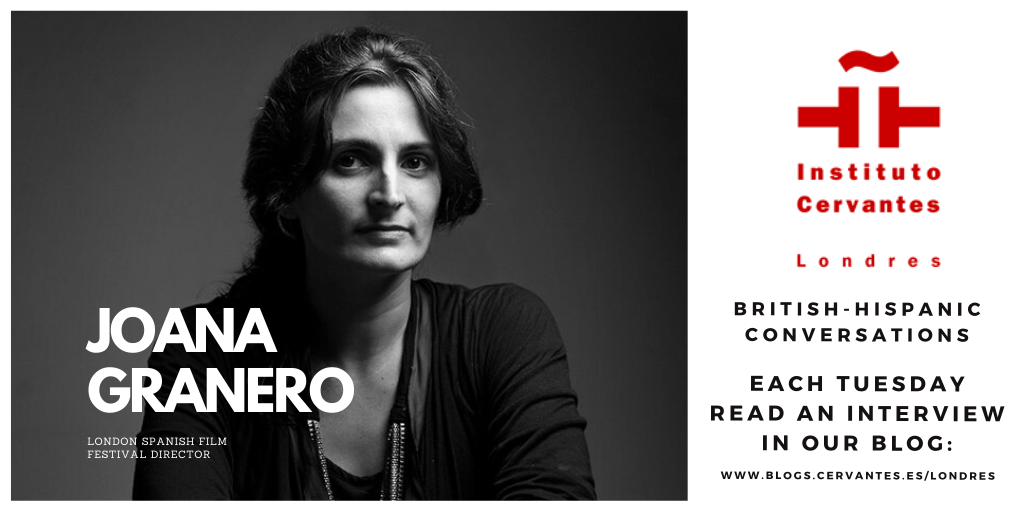
This week, we continue a series of interviews with personalities from the Spanish-British sphere. Our fifth guest, Joana Granero, is the director of the London Spanish Film Festival in London.
Granero was born in Tarragona (Catalonia). After graduating in Law from the University of Barcelona she spent a couple of years in Italy and then moved to London, where she worked in publishing and got a MSc in Political and Social Theory from Birkbeck College.
Out of a passion for cinema Granero created the London Spanish Film Festival in 2005, an event that was to fill a gap in London’s cultural panorama by bringing contemporary Spanish cinema in a well-defined context.
In 2008 the Ambassador of Spain in London awarded her with the civil merit medal (Orden de Isabel la Católica) in recognition of her work with Spanish cinema. Granero also works as an independent curator and producer.
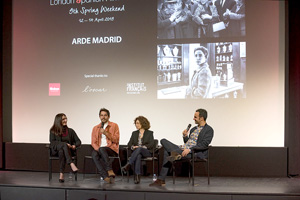
– Out of a passion for cinema, you created the London Spanish Film Festival in 2005, how did the idea come up?
The idea came up seeing the few opportunities to watch Spanish cinema in the UK, particularly in London, a city so rich culturally, where it was possible to watch such a wide variety of films, from so many different countries. Spain was underrepresented. Then it was only possible to watch a few films at the international festivals and only Almodóvar, Amenábar and Medem got distribution of their films with few exceptions. I thought there was so much more to watch and, having always been a cinephile, I missed it. Hence at the moment in my career in which I was looking for a change, I put myself to work and here we are!
– How have these 15 years at the LSFF been?
All in all, they’ve been exciting and enriching. They’ve been exciting because it’s never been boring or plain. We’ve lived many challenges, stressful situations alternated with moments of jubilation seeing the happiness of an audience, moments of joy with a full house and an impressed guest from Spain. Also some embarrassing and uncomfortable situations, like having to announce a guest’s last minute cancellation to an expectant audience. But every year we feel enriched with all the films, their contexts and conversations with guests, following the work of young and not so young filmmakers, and we feel extremely happy and proud to share it with audiences.
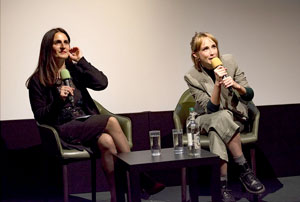
– Could you share with us a couple of anecdotes that you remember from all these years?
One of my favourite moments ever is when Jorge Coira came to present his film «18 comidas«. We introduced it briefly to a full or nearly full house, which was surprising because he was not one of the best-known directors. We went for dinner while the audience watched the film and came back to do the Q&A and as people were leaving the cinema so many were approaching him to thank him for the film and tell him how much they had enjoyed it. In English, in Spanish and in Galician. Some were even thanking me for having brought the film over. Coira was moved. I was moved and trying not to cry. It was magical. That feeling of having gifted something that had made people happy even if only for an evening.
There have been many great moments behind the scenes too, like having very informal drinks at the end of the evening in the salons of the cinema with Fernando Trueba or Javier Cámara, the Festival’s team and the projectionist. Also some delightful surprise, like when Geraldine Chaplin was our guest and a gorgeous Oona Chaplin came looking for her mother, when Olga Kurylenko came to see her friend Jordi Mollà, who was our guest, or when we spotted among our audience Mike Lee, Steve Buscemi or Elle Macpherson.
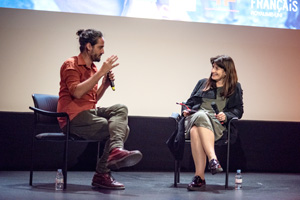
© PopKlik
– How do you describe the general picture of Spanish cinema in the UK? Do you think our film industry is in good shape?
Since we started, the position of Spanish cinema in the UK has improved generally because there have been more films distributed and home cinema and streaming have contributed to this but there is still much room for improvement. Nevertheless we are very happy to see that the Festival and its Spring Weekend have become a regular, solid and anticipated window to the cinema from Spain in London.
As per the health of our film industry, I think more should be done in terms of promotion and distribution but of one thing we are convinced: there’s much talent in Spain and it’s being channeled.
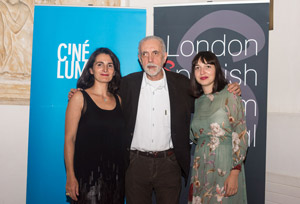
© PopKlik
– You are now working on the round off the 16th edition of the festival, what do you plan on showcasing?
It’s difficult to say anything about the next edition due to all the uncertainty surrounding COVID19 and public gatherings. We keep working in a program but we’ll have to see what is possible and what is not. So far our 10th Spring Weekend scheduled for May has had to be cancelled but we may be able to have a short «summer weekend». We have to wait a bit and see. But we keep working with the cinemas and our supporters towards a solution.
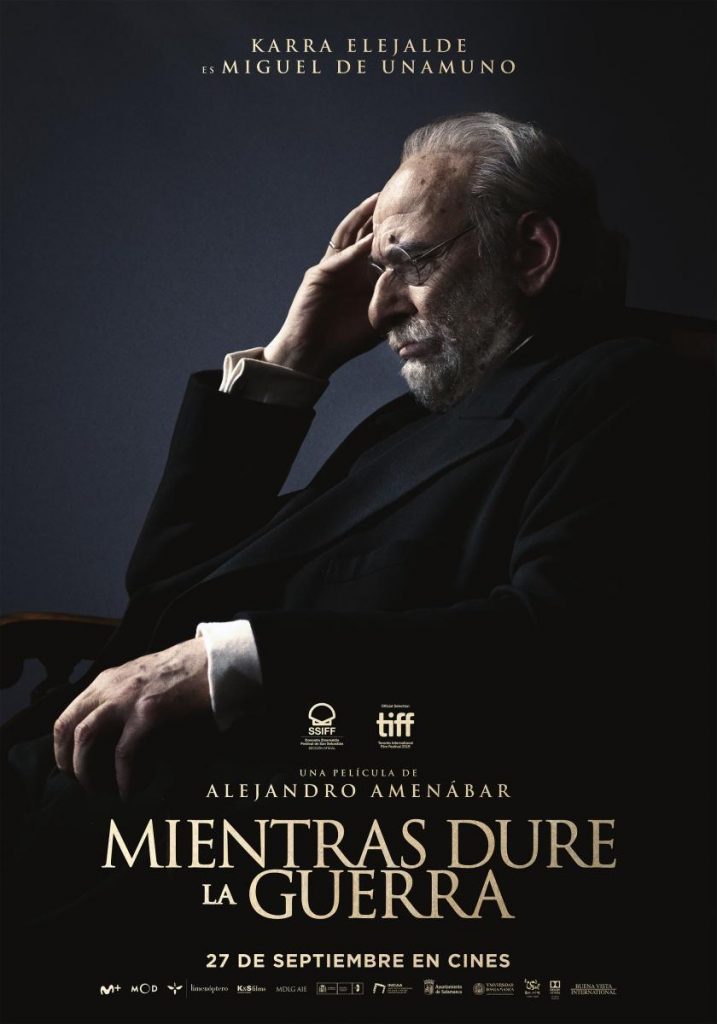
– The audience loves your Q&A featuring very diverse guests in the programme. Who would you like to have in the next upcoming months?
Hard to say without a program in hand but we’ve recently watched the latest film by Alejandro Amenabar, Mientras dure la guerra / While at War, and we’d very much like having him with us to talk about this film and his work as filmmaker but also about his music work. We’d love to have back Carlos Saura but this time with his daughter, Anna Saura, who has been producing his latest theater and film productions. I first met her when she was 9 years old and she’s become a great and determined producer. We’d also love having back Alvaro Longoria to talk about his tireless work as a director and producer.
Dream guest would be Pedro Almodovar. We’ve featured some of his work along the years and we’d love having him with us to talk about anything. He has so much to offer. We’d also like to talk cinema with Alberto Rodriguez. And books, films and food with Isabel Coixet. I could go on for a good while….
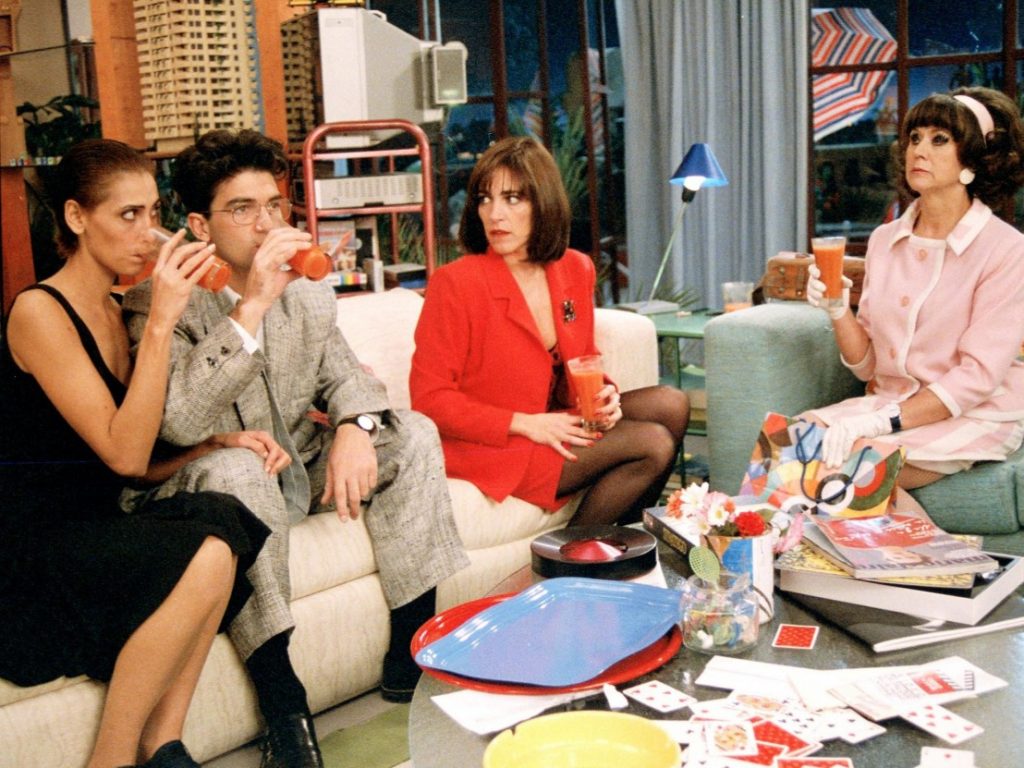
– Could you suggest the title of 5 Spanish films to our audience so they can get a good introduction to Spanish cinema?
As I’ve mentioned Pedro Almodovar, I’d start with Women on the Verge of a Nervous Breakdown. I think there’s a before and an after that film. At the time it came out I could not get tired of watching it. I was completely fascinated by that refreshing way of looking at cinema and at women. And I think it has a timeless quality about it.
La tia Tula, by Miguel Picazo, illustrates very well with its realist approach provincial society in 60s Spain and it’s been a point of reference for Almodovar himself.
El extraño viaje, by Fernando Fernán Gomez, is one of my favorites. It is illustrative of the very Spanish tradition of esperpento. It’s fun. It’s crazy. It’s daring. It’s absurd. One can’t but wonder how it went through Franco’s censorship in 1964.
Te doy mis ojos, by Iciar Bollain, is another gem I think with two fantastic actors, Luis Tosar and Laia Marull. In a realistic and delicate way shows a dark side of Spain’s society.
Que Dios nos perdone / May God Save us is a film by Rodrigo Sorogoyen, from a younger generation. I think it is a terribly good film and representative of a maturity in Spanish cinema.
These are only a few of the many, many films I think could provide with a good introduction to Spanish cinema. This is perhaps just one of many ways to start.


